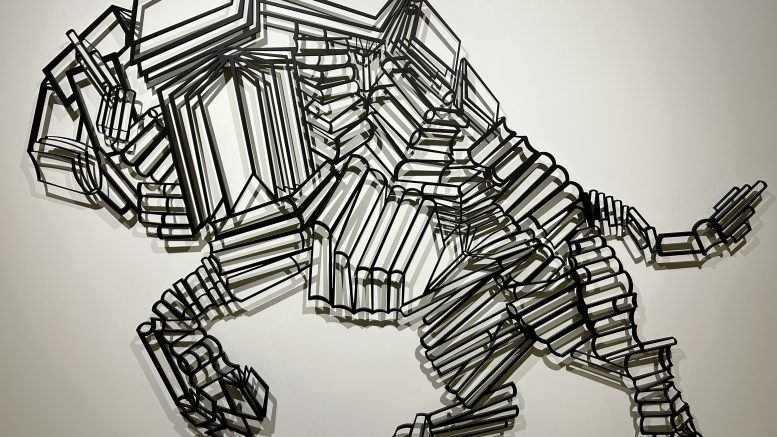Indigenous art education co-ordinator for the school of art gallery Justin Bear L’Arrivée hopes to expand Indigenous art across campus.
Bear L’Arrivée is the co-ordinator of the new Indigenous Student-Led Indigenous Art Purchase Program (ISLIAPP). The group intends to decolonize art on campus and make up for a lack of Indigenous art.
As faculties focus on Indigenous recruitment, Bear L’Arrivée said student spaces need to feel safe, and “having this program is going to introduce a lot of Indigenous art into those spaces.”
The seven ISLIAPP committee members all represent different faculties at the U of M, each of which has its own space to have more Indigenous representation.
ISLIAPP plans to bring representation to campus with contemporary Indigenous pieces. Bear L’Arrivée said, “if we open it up to more contemporary art, there’s a lot more ideas that are being expressed.”
Bear L’Arrivée said they want to have contemporary artwork from queer Indigenous artists and art with different political and social themes.
“I think it’ll be helpful having that more contemporary stuff in spaces that aren’t necessarily also just Indigenous spaces,” Bear L’Arrivée said.
“You might look at a piece and not explicitly know that it’s an Indigenous artist, but the themes are there and it’s speaking to the person experiencing it. It can be quite powerful.”
Bear L’Arrivée said the committee will go directly to the artists because “part of the goal of the program is building relationships.”
C.W. Brooks-Ip, registrar for the University of Manitoba art collection, said they noticed a discrepancy in Indigenous representation in the current collection.
The ISLIAPP received $60,000 through the Indigenous Initiatives Fund, with $31,000 of the budget allocated for art purchases over the next two years.
Brooks-Ip said collections at the university generally rely on donations, however, artists are not always in the position to donate.
They continued, “I believe to balance our collection properly it’s worthwhile to pay for art.”
While the project is funded by a grant now, Brooks-Ip is “very convinced this is a program that should be funded permanently.”
“I’m excited to do two years of this, which is what we have the funding for, but to make a real impact, this, or a program like this, has to go on much longer.”


